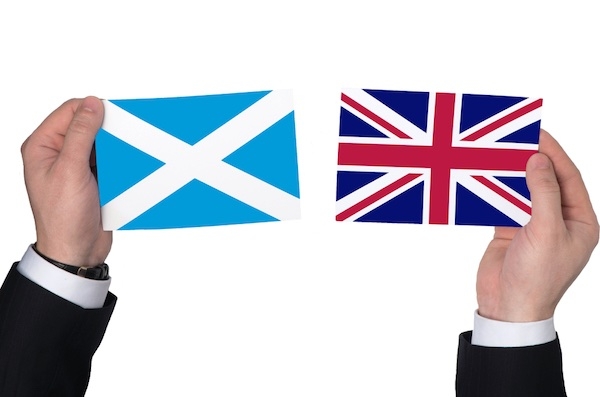
Warning on pension chaos north of the border

Proposed changes to income tax bands in Scotland could cause pension chaos for consumers, advisers and pension providers, platform and Sipp provider AJ Bell has warned.
Income tax changes outlined in a discussion paper by the Scottish government will include six income tax bands and a different “basic rate of tax” for Scotland. This would mean different calculations for pension contributions in terms of tax relief entitlement and annual allowance availability.
An announcement is expected in next week’s Scottish Budget on 14 December on whether to adopt one of these or something else.
Scottish taxpayers may end up being mistakenly treated as English and Welsh taxpayers and this could result in them receiving the wrong amount of pension tax relief and potentially exceeding the annual allowance, says AJ Bell.
Another problem that may arise in changing tax rates is that if the provider still has the member down as a English and Welsh taxpayer they would claim back 20% tax relief rather than 18% under Scotland’s tax relief.
Gareth James, head of technical resources at AJ Bell, said: “If next week’s Scottish Budget confirms a rate other than 20% to be the Scottish basic rate, it will have significant unintended consequences and introduce additional complexities for customers, advisers and pension providers.
“If the Scottish basic rate of income tax was anything other than 20%, this would result in a potentially large number of people automatically receiving too little or too much pension tax relief on their contributions, potentially meaning they will face tax charges or having to jump through additional administration hoops to deal with the consequences. This will be confusing for consumers and create additional work for financial advisers and pension providers.
“Even if the Scottish basic rate of income tax remains at 20%, if Scotland has a larger numbers of income rate bands than exist today or allowances are different, lots of people receiving pensions from their scheme will potentially be taxed on a different basis to the one they were expecting.”
There are 770,000 taxpayers in Scotland contributing to pension schemes under relief at source that could potentially be affected by this, says AJ Bell.
Under the new system the HMRC will notify pension members, who made contributions in the 2016/17 tax year, in January whether they are on the “S” tax code (for Scottish taxpayer) or an “rUK” tax code (Rest of UK taxpayers). Providers will then be able to claim basic rate tax relief on contributions and pay tax on income at the appropriate rates from the 2018/19 tax year. Pension members who did not contribute will be able to determine their tax code via an online HMRC look-up service.
From April 2016, the Scottish Government has had the power to vary the income tax paid by Scottish taxpayers. This works by taking the UK rates as a starting point and then reducing them by ten basis points. The Scottish Government can then decide how much tax to add back on top of that.
So far, they have simply added the ten basis points back to keep the rates the same as in the UK. However, this could change in 2018/19.
